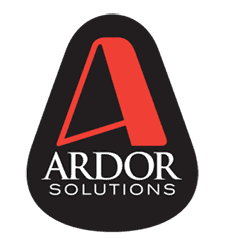
Finding a foundation that’s considered food safe flooring by the FDA may seem like a daunting process, but there are only a few key factors that come into play when considering the right flooring choice for your food processing facility.
What You Need to Know About Food Safe Flooring Regulations
Facilities operating in the food and beverage industry must comply with several complex regulations in order to operate safely. In fact, facility operators are burdened with a long list of guidelines, considering that they must comply with regulations created by the Food and Drug Administration (FDA) and the United States Department of Agriculture (USDA).
The FDA and USDA implement a lot of red tape due to the hazards associated with food production. Hazards, such as food contamination, have multiplied due to an ever-growing population requiring a more intensive food production process on a larger scale.
Not only do facility owners have to comply with the FDA and USDA regulations, but they’re also required to take note of hygiene standards based on benchmarks from international bodies, such as the Food and Agriculture Organization (FAO), International Food Safety Authority Network (INFOSAN), and the World Health Organization (WHO). All standards must be maintained to avoid foodborne disease outbreaks.
Food Safety
It’s essential to keep consumable food and beverages at a high-quality level. And that involves considering a safe environment to operate from. In a building where soft drinks are manufactured, processed, and packaged, such as a beverage processing facility, it’s essential to guarantee food safety.
But what most facility owners often overlook is choosing adequate food safe flooring. And in the food and beverage processing industry, ensuring consumable products remain uncontaminated starts with FDA-approved floor coatings.
Floor Coating Requirements
It’s essential to implement safe industrial kitchen flooring, commercial restaurant flooring, or food processing flooring in food preparation areas like commercial kitchens where raw ingredients, hot oils, and grease are commonly handled and inadvertently spilled.
The FDA and USDA regulate food processing flooring because contamination risks can be mitigated by investing in a proper flooring system.
There are several steps facility owners can take to sufficiently prevent the growth of pathogenic organisms and comply with regulations—implementing safety flooring is a key factor in achieving that goal.
The FDA requires food processing flooring to have the following:
- Seamless, joint-free finish
- Impervious to water
- Coved at wall junction
- Able to withstand cleaning routines
- Durable to avoid cracking and erosion
Food processing flooring often becomes the most contaminated area of a production facility for many reasons. Dirt can be tracked through the building, resulting in bacteria buildup and contamination throughout the facility.
The USDA and FDA require flooring to have a smooth finish without cracks because floor imperfections, such as seams, joints, grout lines, and gaps, serve as a breeding place for fungi, mold, and bacteria.
A seamless floor also ensures the implementation of an effective cleaning program, allowing for easy removal of contaminants.
Contact us today to schedule a consultation with our flooring experts.
Urethane Coating Flooring
Facilities in the food and beverage industry have specific requirements for flooring options, such as slip-resistant, abrasion-resistant, and chemical-resistant. It’s also a requirement to ensure the flooring allows for easy removal of bacteria.
Slip-resistant flooring in the food and beverage industry is crucial for the safety of your employees. Cementitious urethane flooring systems include anti-slip materials designed to provide grip for heavy foot traffic while also giving your floor a seamless finish, which allows for an efficient cleaning process.
At Ardor Solutions, we specialize in providing sufficient, affordable urethane coatings that are non-toxic and chemical- and abrasion-resistant.
Epoxy Flooring
Another flooring solution available to ensure your food processing facility is compliant with FDA regulations is epoxy. This coating resin is combined with concrete, which creates a nonporous surface that delivers the durability and reliability of stand-alone concrete while offering simplified maintenance.
If you have any questions regarding epoxy flooring, contact one of our flooring experts. We can answer any questions you may have.
F&B Flooring Solutions
Ardor Solutions offers a variety of flooring solutions for the food and beverage industry. Whether you need a coating for commercial kitchen flooring or food processing plants, we focus on your every need as a partner. Our solutions are rapid, effective, and compliant with regulations. We hold ourselves accountable for every project we take on.
Contact our flooring experts today.


